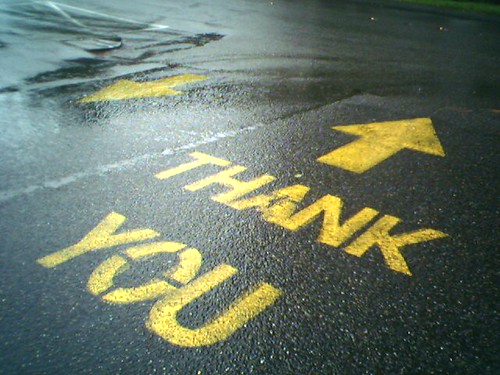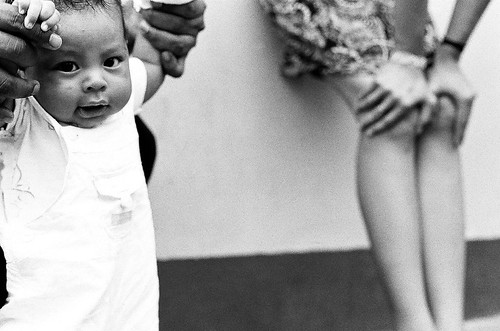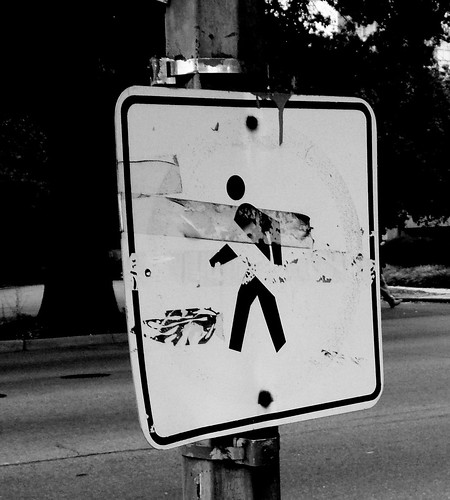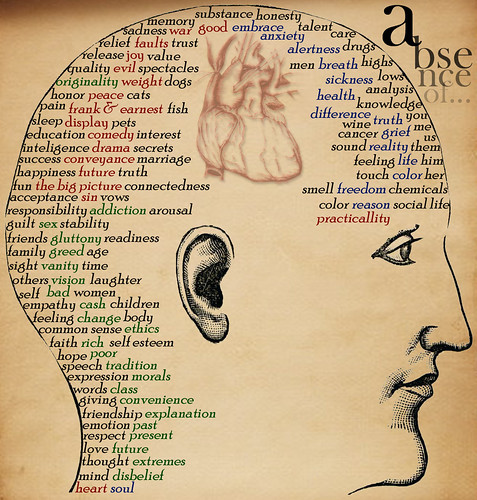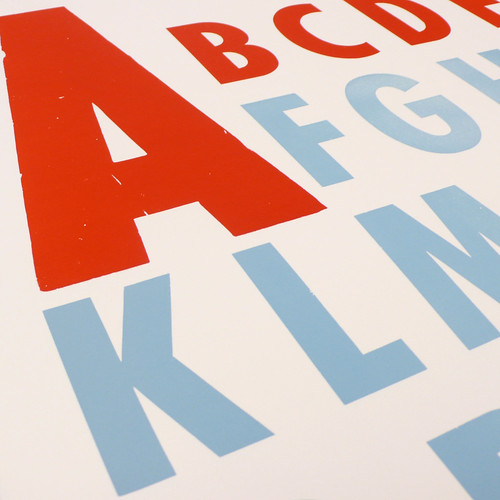(from prompt #44 in The 3 AM Epiphany)
Read my response:

"The Crowd Kiss" by hipposrunsuperfast
The full room, swollen with the scents and sounds of too many people, nonetheless invited private conversations. The worst place to be if you don’t want anyone to hear you is the place where there’s nothing else to hear. Near me a little girl told her father that sometimes dogs are brown, and somewhere behind me a man decided outloud and seemingly to himself that he’d like an egg salad sandwich for lunch, even though they are never satisfying, but that’s why he’d have chips as well. I don’t mean to eavesdrop, most people don’t, and if I’d had a companion I’d be absorbed with them, and not others. When I heard her voice I knew it immediately, and I was about to shout her name when I heard the edge in it.
“What are you trying to say then, that bodies are public property? Like a tree? Like a ROCK? So you have as much right to look at a woman’s ass as at a fucking rock, is that correct? I’m sorry, babe, maybe I’m confused, but honestly you sound like an asshole.”
“I never said it’s the same to look at a girl’s ass as a rock. Well, it depends on the ass actually, if the girl worked out a lot…Babe I’m kidding. Calm down. All I said was you can’t blame me if we are out in public and I see things. You look too.”
“I look at men’s asses all the time, yep. Sometimes I buy magazines just to stare at a naked man’s ass, you know. That’s what girls do, they just go look at men’s bodies for the sheer pleasure of it, all the time. Oh my God, I can’t even look at you you are so stupid. You don’t even get it, you don’t even have any idea what its like. ”
“Don’t be mean. You don’t have to attack me just because you’re insecure. What don’t I get? Tell me. I definitely don’t get what made you get so pissy in three fucking seconds. We are IN PUBLIC.”
“Don’t be mean? How am I being mean? I am not being mean! I am trying to explain that it’s a really asshole thing to say that it’s totally okay to stare at another woman’s tits when you are IN PUBLIC with your GIRLFRIEND right next to you, dammit. But obviously I guess I am a bitch for that, and anyway anything I say has nothing to do with respect or maybe the fact that you see nothing wrong with objectifying women, but clearly it all comes down to me being insecure. And jealous. So I guess nothing that I say even matters.”
“Holy shit. You have called me an asshole like ten times. You have. And you are attacking me. You are. Can we just be done now? I love you, you are beautiful, all of that, I respect women as equal to a man, except for certain things, and I’m sorry you caught me looking at another woman’s boobs, okay? But you have to admit they were pretty much on display.”
I looked over to see if she was seething or laughing, as it could have gone either way with her. But then I made eye contact and immediately felt my forehead growing warm with embarrassment. I could not hide how much I’d heard, it was written all over my face. He gave me a sheepish nod, and turned with her to head out the door. Just behind them, a beautiful woman nursing her baby on her functionally engorged breast stood with an expression of amusment that I could only admire from afar.




